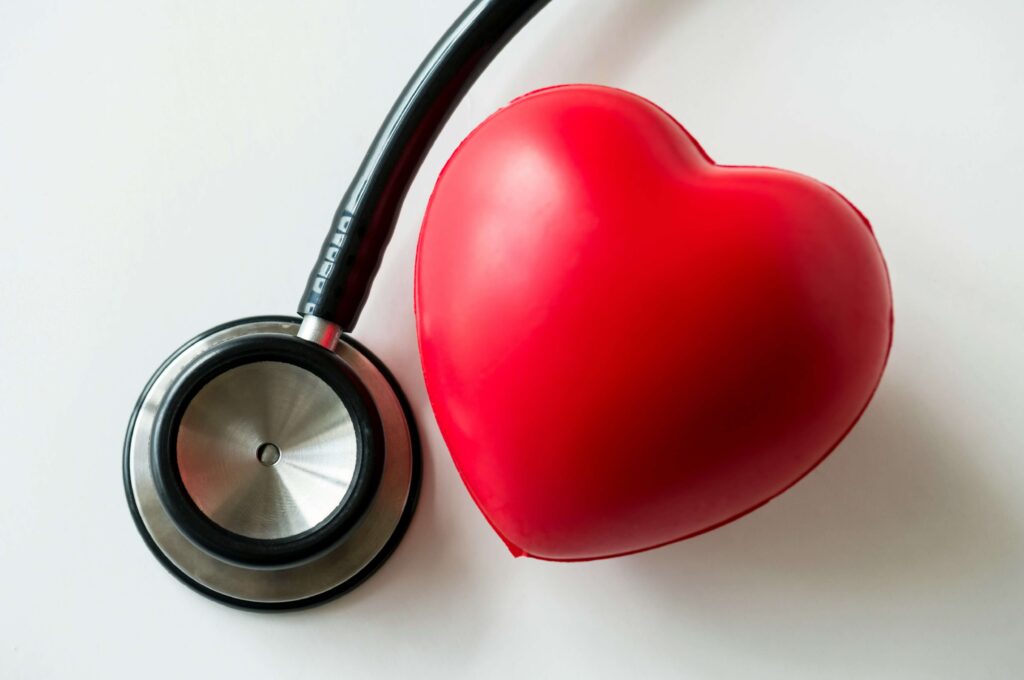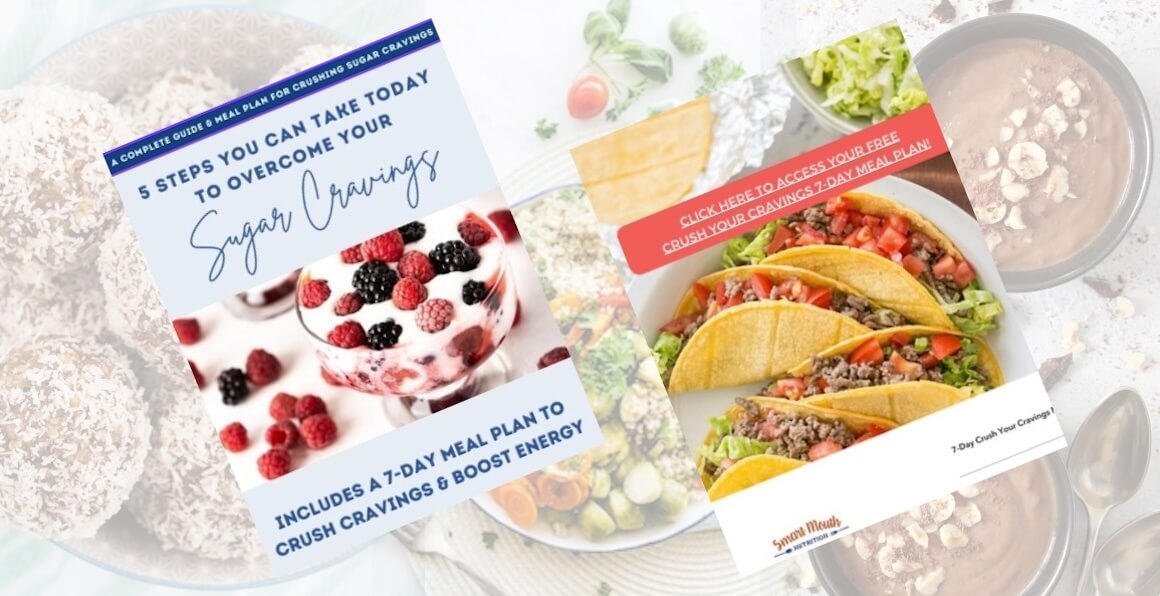September is National Cholesterol Education Month, which means it’s a good time to shine the spotlight on the importance of cholesterol and how to keep it in check. Sure, you know your numbers (or maybe you don’t) and that you’re supposed to keep those numbers low (but maybe you aren’t).
And let’s be real—many people don’t really think much about cholesterol… until it is too high. So if you’re looking to improve your numbers, stick around. We’re going to talk about why managing cholesterol is so important and some ways to improve your heart health through food and lifestyle habits.

Understanding Cholesterol: The Good, the Bad and the Ugly?
You’ve likely heard that high-density lipoprotein (HDL) is the “good” and low-density lipoprotein (LDL) is the “bad” cholesterol. Yes, but it’s more complex than that.
First, cholesterol is essential for your body. We need it. Our bodies make it (in the liver) and this waxy, fat-like substance is found in the body’s cells. We also get it from animal-based foods (because animals’ livers produce cholesterol too). Cholesterol is transported to cells via lipoproteins—and those lipoproteins carting around cholesterol are LDL and HDL.
Why You Should Pay Attention
The problem with cholesterol begins when there is too much, particularly when there’s too much LDL or triglycerides, another type of fat in the bloodstream. Excess LDL cholesterol can lead to plaque buildup in our arteries, increasing the risk for a heart attack or stroke. Too high triglycerides can also contribute to heart disease if not controlled. On the other hand, HDL can help remove excess cholesterol and take it to the liver, where it’s broken down and removed from the body, which is why a higher HDL is often optimal.
Between managing your career, family and other parts of your personal life, it’s easy to overlook heart health. But high cholesterol can lead to long-term health issues if not addressed. Fortunately, small changes in diet and lifestyle can have a MAJOR impact.

How to Improve Cholesterol through Food, Supplements and Lifestyle
- Focus on fats
Healthy fats, that is. Monounsaturated fats, found in avocados, nuts, seeds and olive oil, help increase HDL cholesterol. Omega-3 fatty acids found in fatty fish (think salmon, mackerel, sardines, tuna, trout and halibut) play a key role in reducing triglycerides. Focus on healthy fats as a way to flavor food and improve cholesterol. Try adding flaxseeds or chia seeds to smoothies or oatmeal, eat fatty fish at least two times a week, cook with olive oil and snack on nuts, seeds or avocados. - Fill up on fiber
The cold hard fact: Nearly all Americans eat too little fiber. And we’re not doing ourselves any favors. Consuming at least 25 grams of fiber might seem difficult, but it can pay big dividends when it comes to heart health. Soluble fiber, particularly, can help to lower LDL cholesterol. Plus, fiber-rich foods slow the absorption of cholesterol, stabilize blood sugar levels and keep you feeling fuller longer. Aim to eat at least 4-5 servings of vegetables each day. And add in other fiber-rich foods, like oats, beans, lentils, fruits, nuts and seeds regularly too. - Reduce added sugars
While sugar may not be the first thing that comes to mind when you think cholesterol, added sugars do play a role in heart health. If you eat sugar in excess (which most Americans do), your liver may actually produce more LDL cholesterol while simultaneously lower HDL levels. Additionally, we know that that high intake of added sugars (from heavily processed and packaged foods) may result in higher triglyceride levels. And to add insult to injury, excess sugar may block an enzyme that helps our bodies break down and excrete triglycerides. Try to replace sugary desserts with fruit and low-sugar dark chocolate and watch out for hidden sugars in packaged foods, sauces, dressings, bars, yogurts and cereals. - Get movement regularly
While exercise might not always fit into your schedule, even moderate activity can increase HDL levels and help control cholesterol. Aim for at least 30 minutes of movement a day, such as walking or dancing. Plus, regular exercise helps to keep blood sugar levels stable and manage weight, both of which may benefit cholesterol levels. - Find ways to manage stress
Stress in small doses is not a bad thing. But chronic or frequent stress that is not well managed has been linked to higher cholesterol levels, which is why it’s crucial to find ways to relax. Practices like yoga, meditation or deep breathing can be simple yet effective ways to reduce stress and support heart health. Even just taking a walk, especially in nature, when stressed can help lower cortisol levels and benefit your heart. - Support with supplements
Science has shown that some supplements may help promote healthy cholesterol levels. Some that seem particularly beneficial without many side effects include Coenzyme Q10 (CoQ10), berberine and psyllium husk. Red yeast rice and plant sterols and stanols have also been shown to be effective, however these may cause more side effects and can interfere with certain medications. Supplement safely by following directions, and always consult directly with your doctor, registered dietitian or other professional healthcare provider before starting supplements.

Takeaway: Small Changes, Big Results
Making smart food, supplement and lifestyle choices can help you manage your cholesterol naturally and protect your heart for years to come. It is important to realize, however, that sometimes high cholesterol levels (especially in people who have a genetic predisposition) are best managed with medication. And even with cholesterol-lowering medications, healthy diet and lifestyle choices are still important.
Bottom line… Know your numbers, talk to your healthcare provider and do what you can to keep your cholesterol in check best for optimal heart and overall health.






This is a well-written and insightful article. Your detailed explanations and practical examples make it easy to understand and apply the concepts. I appreciate the effort you put into providing such thorough information. Thank you for sharing your expertise with us.